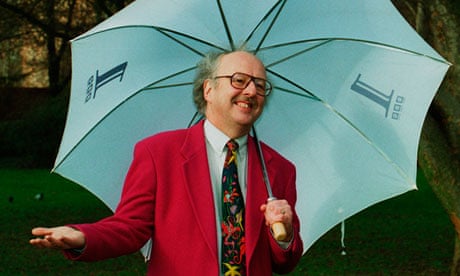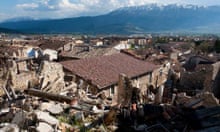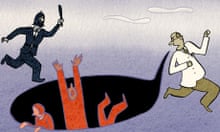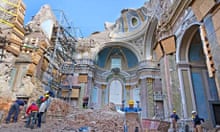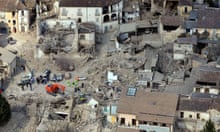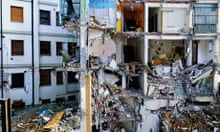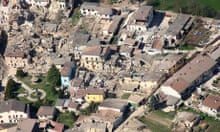One was a flamboyant Tuscan astronomer hailed by some as the father of modern science; the other is a one-time BBC weatherman from Eastbourne. In ordinary times Galileo Galilei and Michael Fish may have little in common, but since Monday they have become opposing reference points for a scientific community in shock. For while the forecaster's infamous dismissal of the great storm of 1987 brought him derision by the bucketload, it certainly never threatened him with six years in prison. The multiple manslaughter convictions on Monday of six Italian seismologists (and a government official), on the other hand, remind many of a time when scientists were treated in a less enlightened manner. "It's almost like we're back to the days of the Inquisition," said one expert, who did not want to be named.
Around the world, scientists have reacted with horror to the decision by an Italian judge to sentence the seismologists to six years in jail for having given false assurances to the public before an earthquake hit the historic town of L'Aquila in 2009. They struggle to think of an example from recent history in which their peers have been treated in a manner considered to be so manifestly unfair. In his Encyclopedia of Hurricanes, Typhoons, and Cyclones, David Longshore writes that, in the 1960s, four Taiwanese meteorologists who failed to predict the landfall of a deadly typhoon were arrested and charged with "dereliction of duty". Regarded as scapegoats for a storm that claimed 330 lives, he writes, the forecasters were eventually released.
Aside from that, there is little historical precedent for the punishment meted out to the seven members of Italy's National Commission for the Forecast and Prevention of Major Risks, which they are appealing. Judge Marco Billi's ruling has provoked stupefaction and warnings of a dangerous example having been set in Italy for scientists involved in hazard prediction. "Next time there's a seismic crisis and they convene a panel to advise on what best to do, who is going to be willing to go on that panel if they face six years in jail if they get it wrong?" said David Rothery, a senior lecturer in earth sciences at the Open University.
He and several others have drawn attention to volcanologists observing the behaviour of Mount Vesuvius, the volcano near Naples whose eruption – if it comes – could necessitate the evacuation of nearby Naples. "The question being asked by people is: what is this going to do for future relations between the scientific community and the public and state?" said Roger Musson of the British Geological Survey. "One can imagine that, next time there are rumblings heard from Vesuvius, Italian volcanologists are going to be reluctant to make any statement because they have no guarantee that they won't find themselves arrested if they say one thing and it turns out to be another."
Headlines suggesting the L'Aquila seven have been prosecuted and convicted purely for having failed to predict the earthquake have caused irritation among scientific circles, where it is well established that the business of forecasting the movements of the earth's tectonic plates is far from an exact science. "For several decades now, scientists have been trying to find a foolproof way of predicting earthquakes, but entirely without success," writes Bill McGuire, professor of geophysical and climate hazards at University College London, on Comment is Free. "We can get some idea of how often a quake will occur on a particular fault by checking the timing of previous shocks, and this will allow us to determine a window – which is likely to be several years or even decades wide – during which a future earthquake is likely to happen. Such 'probabilistic forecasting' is not, however, the same as being able to say definitively that there will be an earthquake next Saturday afternoon at teatime."
Prosecutors in the seismologists' case say they were well aware of this; their argument was that deaths in the earthquake could have been avoided had people not been reassured by one of the experts that the situation was "normal" and that they should stay in the area. On the issue of communication, then, Musson said the case should be "carefully examined" for any lessons to be learned. But opinion is virtually unanimous that, whatever shortcomings there may have been, a criminal courtroom is no place for them to be settled, and a prison cell is no place for world-renowned scientists to rue the day they called it wrong. "These people should have been spending their time since 2009 working on earthquakes and how to improve the hazard warnings, and instead they have been distracted by the trial, and now they are going to be distracted by the appeal," says Rothery. "And that's not going to help the science of earthquake prediction and mitigation in Italy or anywhere in the world."
